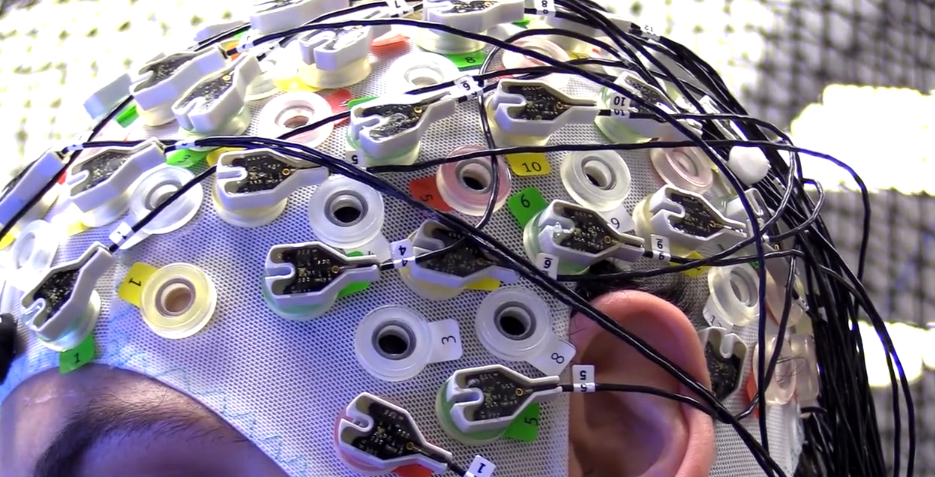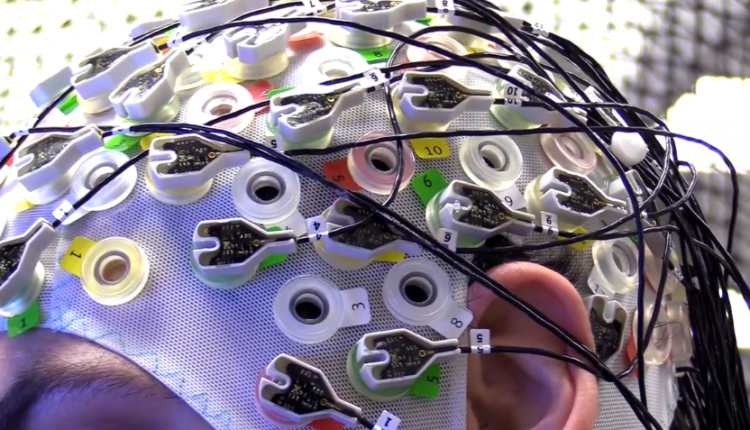Video of the Day: Man controls drones with his mind
Drone tech is cool. Drone tech via mind-control is even cooler.
An Arizona State University professor just figured out a way to control multiple drones and get them to perform different tasks — with his brain — via wireless interface.
Watch it happen in the video below, as the user wears a cap equipped with 128 electrodes wired to a computer. The cap records electrical brain activity, so if the controller moves a hand or thinks of something, certain areas light up.

The researchers can view the brain activity based on the illuminated areas and then decipher it to control different aspects of robotic activity.
“We have a motion-capture system that knows where the quads are, and we change their distance, and that’s it,” said Panagiotis Artemiadis, director of the Human-Oriented Robotics and Control Lab and an assistant professor of mechanical and aerospace engineering.
So far, Artemiadis and his group of researchers have been able to control as many as four small robots, via brain interfaces.
To propel the drones into action, the controller watches on a monitor and thinks and pictures the drones performing various tasks.
Artemiadis recruited the help of Air Force pilots to bring the project to life and received support from Defense Advanced Research Projects Agency of the U.S. Department of Defense and the Air Force.
According to Artemiadis, the technology will only work if the controller is focused mentally. For example, if you’re too hungry and have food on the brain, the mind-control will not be effective.
Since each human subject is different, the system has to be calibrated to individual controllers every single day, since brain signals change daily.
Next, Artemiadis will work on getting multiple people to control multiple robots. He plans to move to a large experimental space in order to evolve his current concept technology. In the future, he hopes to see mind-controlled drone swarms performing operations like search-and-rescue missions.
Story via Arizona State University.


Comments are closed, but trackbacks and pingbacks are open.